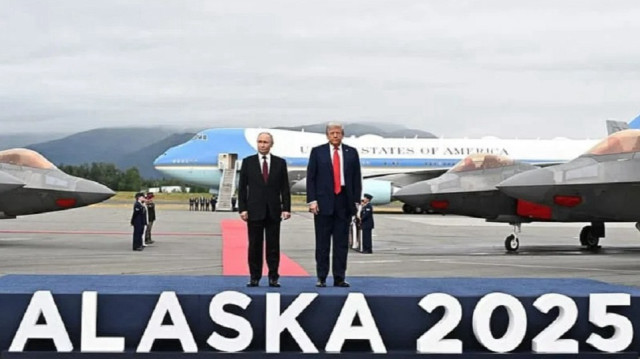
The lesson of the Alaska Summit is clear: Trump is unwilling to make Moscow pay for its aggression against Ukraine, no matter how many ultimatums he issues
US President Donald Trump’s meeting with his Russian counterpart Vladimir Putin delivered exactly what Moscow wanted — no deal and no further sanctions. Trump, who had threatened "serious consequences" if no immediate ceasefire was reached, instead retreated empty-handed. The result was a diplomatic win for Putin, with only the vague prospect of a peace process that leaves Russia free to seize more land at no cost. With Trump unwilling to take a harder line on Russia, Europe’s only choice is to turn the tables on Washington, taking the initiative and intensifying the pressure on Moscow.
For Ukraine and Europe, the only relief was that Trump did not strike a territorial concession deal with Putin in pursuit of a short-term political victory. But the press conference made clear that such a deal in exchange for a ceasefire was never on Putin’s agenda. The Kremlin leader emphasized the need to address what Moscow calls the "root causes" of the conflict — namely Ukraine’s independent statehood and Euro-Atlantic future. Convinced that Russia is winning and that Kyiv will eventually crack, he showed no interest in compromise.
- Europe’s structural weakness
Faced with Putin’s hardline position, Trump dropped the immediate ceasefire as his central objective — a move that directly contradicted the approach agreed with Ukraine and European leaders before the summit. Yet this reveals Europe’s underlying weakness: a cycle in which Trump sets the strategic goals, while European governments limit themselves to providing the means to achieve those goals, from the Coalition of the Willing to the new scheme of financing US weapons through NATO.
Such a division of labor can work. It did during the Cold War, when US leadership steered the West to victory but it relies on a strong transatlantic bond and genuine trust, both of which now appear increasingly fragile. And if Trump unilaterally shifts the strategic objective in Ukraine from a ceasefire to an illusory full-scale peace deal, what purpose will these European-crafted mechanisms serve?
The lesson of the Alaska Summit is clear: Trump is unwilling to make Moscow pay for its aggression against Ukraine, no matter how many ultimatums he issues. The only viable path for Europe is to seize the initiative, demonstrate leadership to Washington and increase pressure on Moscow.
- Europe's opportunity to lead
In this context, it is encouraging that Ukrainian President Volodymyr Zelenskyy will be joined in Washington on Monday by several European leaders, including German Chancellor Friedrich Merz, Finnish President Alexander Stubb, French President Emmanuel Macron, and European Commission President Ursula von der Leyen. Their presence sends a powerful message that Ukraine is not alone and that the EU regards Kyiv’s fate as an integral part of its own security. However, it is not enough for the leaders merely to exchange views or receive Trump’s account of the situation. They should also come prepared to put forward concrete solutions.
This is where symbolism must give way to substance. Europe must start acting with confidence, as it "has the cards" to play a more active role. Europe already provides more military aid to Ukraine than the US, whose latest package is nearly exhausted. Moreover, Washington is increasingly shifting the financial burden of US weapons onto European allies. The Coalition of the Willing led by France and the UK should not wait for a ceasefire but deploy in a non-combat role to boost Ukraine’s defense away from the frontlines by providing intelligence, surveillance and reconnaissance, boosting air defenses to protect Ukrainian critical infrastructure and civilian areas, as well as assisting with training of Ukrainian military and providing logistical support. Europe should also stop wrangling over frozen Russian assets, seize them outright and channel the funds directly into Ukraine’s war effort.
At the same time, the EU must recognize that its foreign and security policy machinery is unfit for an era of great-power competition and urgently reform it, starting with the slow and ineffective unanimity rule on sanctions and other decisions. Without such change, Europe risks sliding into even greater irrelevance and resigning itself to the role of a secondary player, even on its own continent.
The gravest danger for Europe is that Putin will read both Europe’s perceived weakness and Trump's reluctance to confront Moscow as a green light for further aggression, eroding the NATO deterrence that has preserved peace on the continent for 76 years. Addressing these weaknesses is essential not only to save Ukraine but also to prevent a wider war.
*The author is a Policy Analyst at the European Policy Centre in Brussels







